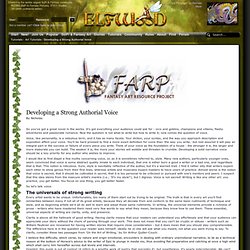

Nuts and Bolts: “Thought” Verbs. In six seconds, you’ll hate me.

But in six months, you’ll be a better writer. From this point forward – at least for the next half year – you may not use “thought” verbs. These include: Thinks, Knows, Understands, Realizes, Believes, Wants, Remembers, Imagines, Desires, and a hundred others you love to use. The list should also include: Loves and Hates. And it should include: Is and Has, but we’ll get to those, later. Until some time around Christmas, you can’t write: Kenny wondered if Monica didn’t like him going out at night…” Thinking is abstract. Instead, you’ll have to Un-pack that to something like: “The mornings after Kenny had stayed out, beyond the last bus, until he’d had to bum a ride or pay for a cab and got home to find Monica faking sleep, faking because she never slept that quiet, those mornings, she’d only put her own cup of coffee in the microwave.
Instead of characters knowing anything, you must now present the details that allow the reader to know them. For example: Versus: How to Write Scene Transitions in Novels. On December 16th, 2010 by Fiction Editor Beth Hill and last modified on February 14, 2011 A scene transition takes characters and readers to a new location, a new time, or a new point of view.

Transitions can also be used to show a character’s change in heart or frame of mind. Transitions are important in fiction because the writer can’t possibly portray or account for every moment in a character’s day, week, or life. A story may stretch over years—readers don’t need to know what happened every minute of those years. So, we use scene transitions to skip periods of time or to change to a new location in the story, glossing over events that happen between the new and old times or locations.
Scene Change, New ChapterScene transitions can be seamlessly inserted at the beginnings of chapters since readers expect a transition between chapters. Take this example: He couldn’t wait to see his brother’s expression when he showed up at the wedding with Paul’s hated ex-wife. Transitions can be short. Filtering and How it Can Weaken Your Prose. What is filtering, and why can it weaken your prose?

According to Burroway et. al., It is a common fault that is not easily recognized, though once the principle is understood, cutting filters away can make writing more vivid. Fiction writers work through an observing consciousness (as in a narrator). Filtering happens when you make your readers observe the observer--to look at, rather than through the character. It dilutes the sense of being shown rather than told, because it reminds the reader that he or she is reading a story rather than experiencing it directly. Burroway et. al., 2011.Writing Fiction, A Guide to Narrative Craft. pp 29-30. Filters are words that describe the act of observing, perceiving, knowing or thinking. Saw heard smelled tasted felt watched thought realized remembered decided wondered. Thought Verbs by Chuck Palahniuk.
6 Ways to Make Sure Your Reader’s Brain Syncs with Your Protagonist’s Brain. Photo by Andres Musta via Flickr Because here’s the thing: it’s not fiction.

It’s fact. Except, you know, for the Vulcan part. And, okay, the part where you have to put your fingertips on the other guy’s face to do it. But hey, the world was pretty much analog back then, so who could blame Wincelberg for seeing life as hands-on, and thus missing the nuances of how information is actually transferred from one brain to another? To figure that part out we had to wait for something that even ‘Bones’ McCoy didn’t have access to — fMRI technology, which revealed that when we’re really engaged in listening to a story, our brain synchronizes with the speaker’s brain – literally mirroring it. fMRI studies reveal that when we’re really engaged in listening to a story, our brain synchronizes with the speaker’s brain – literally mirroring it.
In other words, we really are on the same wavelength, and their experiences become ours. The exact same thing is true when we’re reading a story. Exactly! 1. 2. Developing a Strong Authorial Voice. By Nicholas So you've got a great novel in the works.

It's got everything your audience could ask for - orcs and goblins, champions and villains, flashy adventures and passionate romance. Now the question is not what to write but how to write it; now comes the question of voice. Passive voice. The I problem.